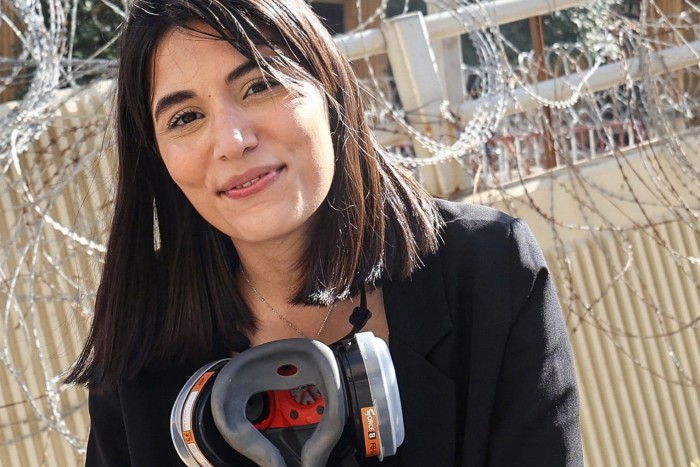Open Editor’s Digest for free
FT editor Roula Khalaf picks her favorite stories in this weekly newsletter.
Joe Biden said Israel and Hamas were “very close” to an agreement that would lead to a pause in hostilities and the release of dozens of civilian hostages in Gaza in exchange for the release of Palestinian women and children in Israeli prisons.
Speaking at the White House on Tuesday morning, the US president said the US had been “working hard on this for weeks” and that “we are now very close, very close”.
While Biden cautioned that “the details” and “nothing is done until it’s done,” he said “things are good right now” — suggesting an improvement is within reach.
Biden’s optimism about the deal brokered by Qatar and the United States was echoed by Israeli Prime Minister Benjamin Netanyahu, who told Israeli troops that “I hope we will have good news soon.”
Israel’s defense and war cabinets will convene for an unscheduled meeting on Tuesday, followed by the full government, which must vote on any possible release of Palestinian prisoners.
Ismail Haniyeh, the Qatar-based leader of Hamas, issued a brief statement on Telegram, saying the group “gave its response to the brothers and mediators in Qatar and we are close to reaching a ceasefire agreement.”
Qatar is mediating hostage talks that would allow the release of more than 50 of the more than 240 civilians held by Hamas in Gaza following the militant group’s attacks on southern Israel.
In return, Israel would agree to a three- to five-day ceasefire and hold 150 Palestinian women and children in its prisons, people close to the negotiations told the Financial Times. The pause could allow for an increase in humanitarian aid, which Israel has severely restricted, into the besieged area.
Members of the International Committee of the Red Cross, which handled the logistics of previous releases, met with Haniyeh in Qatar on Monday.
Fighting continued in Gaza, with Israeli troops operating near the northern edge of the strip, near a now-defunct Indonesian hospital. Nearly a dozen people died in an explosion at the hospital on Monday, local health officials said, while Israel said its troops fired from inside the hospital.
Israel Defense Forces are also fighting in the eastern parts of Gaza City. Pockets of Hamas militants remain within the city limits, which Israeli troops have encircled and infiltrated since its ground invasion began on October 27.
The IDF estimates it has destroyed two battalions of Hamas fighters, while significantly reducing the capabilities of others, with its relentless aerial bombardment, destroying more than half of the buildings in northern Gaza and protecting its soldiers’ advances.
Israel has imposed a blockade on Gaza since the Hamas attack, which Israeli officials say has killed around 1,200 people. According to Palestinian officials, 13,000 people were killed as part of Israel’s retaliatory bombing and invasion.
Separately, the Israeli military said it had freed renowned poet Mozab Abu Doha, who was being held at a Gaza checkpoint while trying to flee south.
Doha has published articles in the New Yorker and Financial Times since the start of the war, documenting the toll Israel’s bombing has taken on civilians and their families. He was named a finalist in 2022 for the prestigious US National Book Critics Circle Poetry Award for his poetry collection. Things You Hide in My Ear: Poems from Gaza.
Doha was detained at a checkpoint on Monday along with about 200 others, a person familiar with his detention said. He was traveling with his infant son, a US citizen, and his wife.
Israel faced international pressure to explain his detention. The IDF said it was acting on intelligence “indicating multiple contacts between several civilians and terrorist organizations within the Gaza Strip,” but found no evidence for its claims.
In Lebanon, the state news agency reported several Israeli attacks near the border. Two journalists and an 80-year-old woman were among the eight killed.
Reporter Farah Omar and cameraman Rafih al-Mamari, who worked for the pro-Hezbollah news network Al Mayadeen, were killed in a rocket attack near the city of Deir Harfa. A third civilian was also killed in the same incident.

Lebanon and Israel have been trading fire almost every day since October 7, but exchanges have intensified recently, raising fears of regional escalation.
Lebanon’s conservative prime minister blamed Israel for the strike on journalists, saying it was an attempt to “silence the media”. The Israeli military said it was investigating the incident.
Iran-backed Hezbollah said the killing of the journalists “will not go unretaliated” before launching cross-border guided missiles as “its first response”.
Footage taken by another journalist following the incident showed Mayadeen’s group standing in the garden of a building overlooking the border. During previous live broadcasts, Omar wore a protective suit marked “Press”.
Almost 50 journalists have been confirmed killed since the start of the Israel-Hamas war, most of them Palestinians in Gaza, the group that protects journalists and advocates for freedom of the press said. More journalists have been killed in this war than will be killed worldwide in 2022.